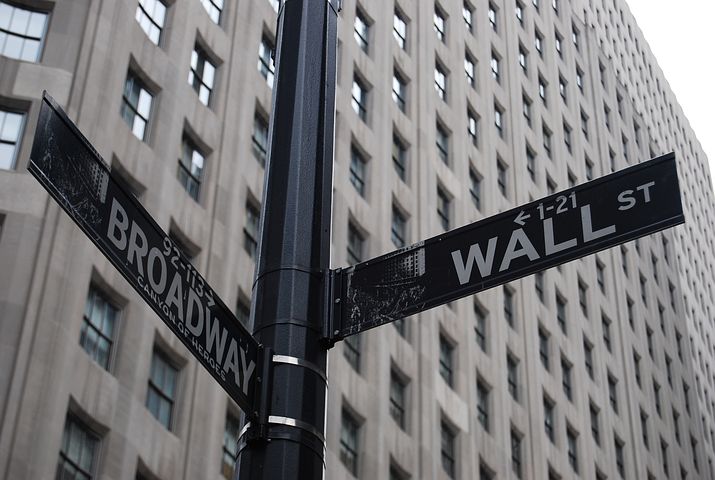

21.03.2019 – Daily report. Amazement at the Federal Reserve: What exactly were the US monetary authorities trying to tell us yesterday? The fact that interest rates are not to be raised for a while was initially received positively. But most recently, concerns have grown that the economic situation in the USA is worse than feared. The Fed is stepping on the brakes harder than expected. And a cold shower of customs treaties between China and the USA also ensured that many brokers in global trade first pressed the sell button.
Losses in Frankfurt
Downward on the stock market: The DAX started Thursday’s trading down, the German benchmark index held below 11,600 points. The index thus picked up the ball from the overseas stock markets. The Fed, in particular, threw the Frankfurt stock market off track a little: investors first had to analyse the mysterious and contradictory news from the previous evening in more detail.
Fed Steps on the Brake
More than most augurs expect, the Federal Reserve is slowing the pace of interest rate hikes. In concrete terms, the US Federal Reserve is initially discontinuing the tightening of monetary policy it began at the end of 2015. The Fed also wants to stop the reduction of its trillion-dollar balance sheet that began in autumn 2017. As expected, the monetary authorities left the key interest rate in a range of 2.25 to 2.50 percent.
The total victory for the doves: this year the Fed will probably not raise the key rate again, but only once next year. Fed Chairman Jerome Powell stressed the virtue of patience. From the economic data neither the reason to raise nor to lower interest rates can be deduced. The Fed also warned against a slowdown in the US economy: the situation on the job market is still strong. However, economic growth had weakened. The increase in consumer spending and investment had slowed.
Irritation in New York
The situation around the Fed caused little buying mood in New York. What had initially brought joy to Wall Street quickly turned into scepticism. After the Fed’s decision, the Dow had even turned positive before the economic worries returned. The Dow Jones closed Wednesday down 0.6 percent at 25,745 points. The S&P 500 fell by 0.3 percent to 2,824 points. Only the Nasdaq Composite rose by a minimal 0.1 percent to 7,728 points. No miracle: Young Hightech companies need urgently favorable credits, in order to grow. So the interest rate outlook is particularly positive for them. Financial stocks, on the other hand, suffered, banks and insurers are being held back by low interest rates.
Hard line in the Customs Dispute
The White House also threw a stick between the bull’s legs. US President Donald Trump told reporters in the White House that customs duties on Chinese goods would probably remain in place for quite some time. First of all, it had to be ensured that China would stick to a deal. The supporters of the hard line in the negotiating team have thus apparently asserted themselves. According to media reports, US Trade Representative Robert Lighthizer and US Treasury Secretary Steven Mnuchin plan to travel to China next week for the next round of negotiations. Of course, this is another reason why you need to keep an eye on your regular market updates.
Concerns in Asi
Needless to say, the recent topics in the customs dispute did not lead to price gains in Asia either. The CSI 300 in China closed almost unchanged at 3,837 points. There is no news from Japan: The stock exchange in Tokyo remained closed due to a holiday.
What is Todays Economic Data?
Another interest rate decision is pending: The news of the Bank of England will run from 1 p.m. on the ticker, the forecast is 0.75 percent. At 1.30 p.m. the Philly Fed index for March should move prices on Wall Street. The average forecast is 3.2 after -4.1 in the previous month. The indicator shows the economic development in the Philadelphia region. We wish you every success in trading!
Important Notes on This Publication:
The content of this publication is for general information purposes only. In this context, it is neither an individual investment recommendation or advice nor an offer to purchase or sell securities or other financial products. The content in question and all the information contained therein do not in any way replace individual investor- or investment-oriented advice. No reliable forecast or indication for the future is possible with respect to any presentation or information on the present or past performance of the relevant underlying assets. All information and data presented in this publication are based on reliable sources. However, Bernstein Bank does not guarantee that the information and data contained in this publication is up-to-date, correct and complete. Securities traded on the financial markets are subject to price fluctuations. A contract for difference (CFD) is also a financial instrument with leverage effect. Against this backdrop, CFD trading involves a high risk up to the point of total loss and may not be suitable for all investors. Therefore, make sure that you have fully understood all the correlating risks. If necessary, ask for independent advice.
